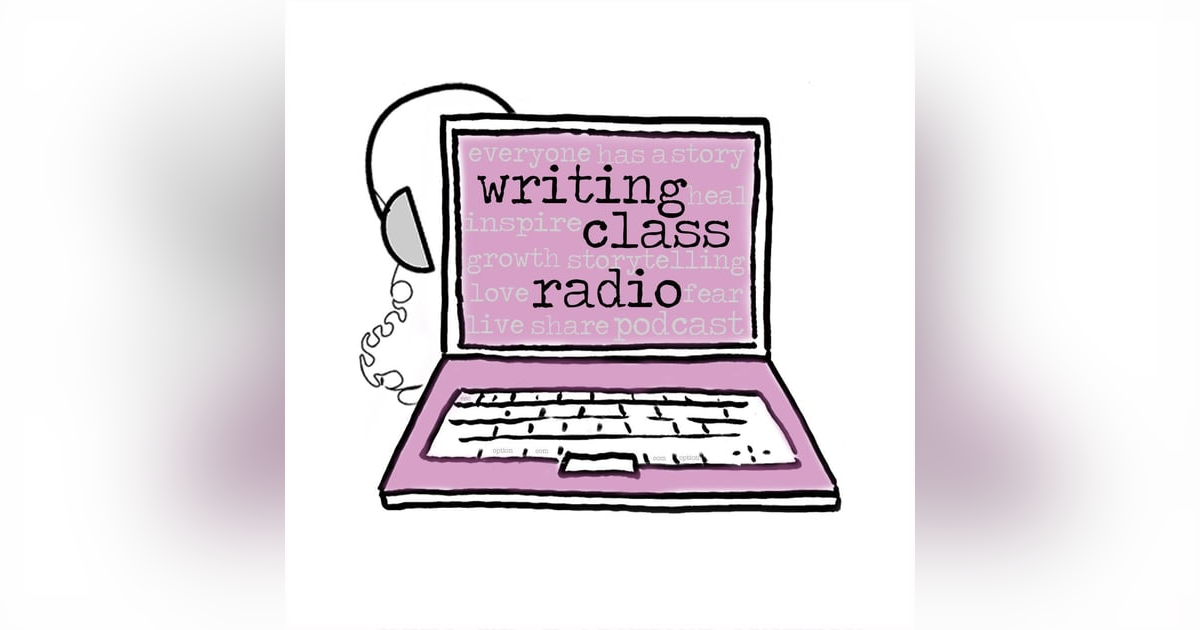
Andrea Askowitz is the host of this episode. She talks about how writing a good story and understanding the results of this presidential election require a mammoth effort in understanding someone else’s point of view, an effort she is failing at right now.
She interviews Stephen Elliott, who is the author of seven books and two movies and the founder and senior editor at The Rumpus, about the job of a memoir writer. Stephen says that in literature, memoir and in life there are no bad guys. “Everybody is part hero and part villain. Most people know that intuitively. But sometimes in our writing we get so angry at somebody that we decide to portray them as strictly a villain. And we forget that somebody loves them. That they’re capable of love. That they do good things. We don’t look for the reasons why they do what they do. We paint them as evil and that’s just never an accurate portrayal of anybody, so it comes off as false because you’re not really exploring that person’s character.” It is our job, according to Stephen, to strive for honesty, which is not someplace you arrive at, but a constant quest.
To get her students closer to the real truth, Andrea had them write from another person’s point of view or to put themselves in another person’s position. Chaplin tries to understand his dad by writing about a time they worked the same difficult job. Allison Langer also tries to understand her ex-boyfriend Gerald by writing letters in Gerald’s voice.
Andrea and Allison have a conversation about a time recently when Allison stepped into someone else’s shoes. She was teaching a writing class and felt challenged by one of the students. Allison was able, in the moment, to realize that the student probably just needed to be known as someone more than the way she appeared. Andrea on the other hand, has been struggling for months to put herself in her friend, Esther’s shoes. Esther spent the months leading up to the election spewing vitriol against Hillary Clinton, including arguments professing women’s inferiority. Andrea knows that to tell an honest story, she has to be able to really understand Esther’s motivations. But she’s not sure she can. Certainly not now.
Yaddyra Peralta, a new student in Writing Class Radio, does the hard work in figuring out why her brother, who hurt her, did what he did.
Writing Class Radio is a podcast where you’ll hear true personal stories and learn a little about how to write your own stories. Writing Class Radio is equal parts heart and art. By heart we mean the truth in a story. By art we mean the craft of writing. No matter what’s going on in our lives, writing class is where we tell the truth. It’s where we work out our shit, and figure out who we are.
There’s no place in the world like writing class and we want to bring you in.
Writing Class Radio is co-hosted by Allison Langer (www.allisonlanger.com) and Andrea Askowitz (www.andreaaskowitz.com). Writing Class Radio is produced by Diego Saldana-Rojas, Andrea Askowitz and Allison Langer.
Visit our musicians page to learn about the talented and generous people who allowed us to use their songs.
There’s more writing class on our website(www.writingclassradio.com), Facebook (https://www.facebook.com/writingclassradio/) and Twitter (@wrtgclassradio).
If you love the lessons you get on each episode, you can get them ALL in one place--our three-part video series. $20 for one part or $50 for the series. Click on Video Classes on our website.
Writing Class Radio is now open to submissions from our listeners. Go to the submissions page on our website for guidelines. We pay!
If you want to be a part of the movement that helps people better understand each other through storytelling, please go to writingclassradio.com and hit the DONATE button.
There’s no better way to understand ourselves and each other, than by writing and sharing our stories. Everyone has a story. What’s yours?
Andrea Askowitz is the host of this episode. She talks about how writing a good story and understanding the results of this presidential election require a mammoth effort in understanding someone else’s point of view, an effort she is failing at right now.
She interviews Stephen Elliott, who is the author of seven books and two movies and the founder and senior editor at The Rumpus, about the job of a memoir writer. Stephen says that in literature, memoir and in life there are no bad guys. “Everybody is part hero and part villain. Most people know that intuitively. But sometimes in our writing we get so angry at somebody that we decide to portray them as strictly a villain. And we forget that somebody loves them. That they’re capable of love. That they do good things. We don’t look for the reasons why they do what they do. We paint them as evil and that’s just never an accurate portrayal of anybody, so it comes off as false because you’re not really exploring that person’s character.” It is our job, according to Stephen, to strive for honesty, which is not someplace you arrive at, but a constant quest.
To get her students closer to the real truth, Andrea had them write from another person’s point of view or to put themselves in another person’s position. Chaplin tries to understand his dad by writing about a time they worked the same difficult job. Allison Langer also tries to understand her ex-boyfriend Gerald by writing letters in Gerald’s voice.
Andrea and Allison have a conversation about a time recently when Allison stepped into someone else’s shoes. She was teaching a writing class and felt challenged by one of the students. Allison was able, in the moment, to realize that the student probably just needed to be known as someone more than the way she appeared. Andrea on the other hand, has been struggling for months to put herself in her friend, Esther’s shoes. Esther spent the months leading up to the election spewing vitriol against Hillary Clinton, including arguments professing women’s inferiority. Andrea knows that to tell an honest story, she has to be able to really understand Esther’s motivations. But she’s not sure she can. Certainly not now.
Yaddyra Peralta, a new student in Writing Class Radio, does the hard work in figuring out why her brother, who hurt her, did what he did.
Writing Class Radio is a podcast where you’ll hear true personal stories and learn a little about how to write your own stories. Writing Class Radio is equal parts heart and art. By heart we mean the truth in a story. By art we mean the craft of writing. No matter what’s going on in our lives, writing class is where we tell the truth. It’s where we work out our shit, and figure out who we are.
There’s no place in the world like writing class and we want to bring you in.
Writing Class Radio is co-hosted by Allison Langer (www.allisonlanger.com) and Andrea Askowitz (www.andreaaskowitz.com). Writing Class Radio is produced by Diego Saldana-Rojas, Andrea Askowitz and Allison Langer.
Visit our musicians page to learn about the talented and generous people who allowed us to use their songs.
There’s more writing class on our website(www.writingclassradio.com), Facebook (https://www.facebook.com/writingclassradio/) and Twitter (@wrtgclassradio).
If you love the lessons you get on each episode, you can get them ALL in one place--our three-part video series. $20 for one part or $50 for the series. Click on Video Classes on our website.
Writing Class Radio is now open to submissions from our listeners. Go to the submissions page on our website for guidelines. We pay!
If you want to be a part of the movement that helps people better understand each other through storytelling, please go to writingclassradio.com and hit the DONATE button.
There’s no better way to understand ourselves and each other, than by writing and sharing our stories. Everyone has a story. What’s yours?








